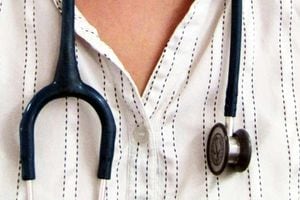Star comment: GP surgery banding system gives helpful indications
We live in a results-oriented society. Our schools, our businesses and our sports teams are all judged by a carefully calibrated set of scores.

There are winners and there are losers. Society makes valued judgements based on those whose performance is best. GP surgeries are the latest sector to be subjected to quasi performance tables.

Eleven GP surgeries in Shropshire have been rated in band one and band two, deemed to be of "highest perceived concern".
In Telford and the surrounding area they include:
Wellington Medical Practice
Hadley Health Centre
Church Close Surgery in Madeley
Shifnal Medical Practice
Oakengates Medical Practice
Ironbridge Medical Practice
In the Shrewsbury area they include:
Riverside Medical Practice
Mount Pleasant Medical Centre
Westbury Medical Centre
Belvidere Medical Practice
Also on the list:
Ludlows Portcullis Surgery is also in the lowest two bands
A banding system has been introduced so that concerns about under-performing surgeries can be addressed far more quickly than might previously have been the case. Such action will allow remediation to create improved health care for the public.
Not all will welcome the new system. There will be surgeries that have under-performed which will be anxious to make amends. In some cases, there will be legitimate reasons for low scores and a worry that the public will make an adverse judgement.
In a minority of cases, surgeries will fear misrepresentation at the hands of the new banding system. There will also be concerns about the impossibility of comparing like for like. A busy, bustling surgery in one of our region's urban areas, for instance, is run much differently to a quiet, rural surgery where the footfall is lower, where economies of scale are not possible and where patient numbers are considerably smaller.
Such concerns have been addressed by one of the Government's chief inspectors who made a pertinent point. As though pre-empting the legitimate worries of some surgeries, he pointed out that the purpose of the exercise is to provide information. Those in authority want to find out whether GPs provide safe, high-quality and compassionate care.
Such remarks are encouraging. It is clear that the system has not been introduced to denigrate those who are perceived not to deliver. Rather, the objective of the exercise is to highlight areas of strength and weakness, in order that improvements can be made.
Not all will be happy with the introduction of a performance-related matrix. However, when taken in the right spirit, surgeries stand to benefit. They will be able to make changes for the benefit of their own operation and for the benefit of patients.
Bandings should not be perceived as being either negative or overtly critical. They should be taken as providing helpful indications about ways in which improvements might be made. And in the final analysis, that can only be for the good.
Are you concerned about the standard of care at your GP surgery? Vote in our poll and have your say in the comment box below.





